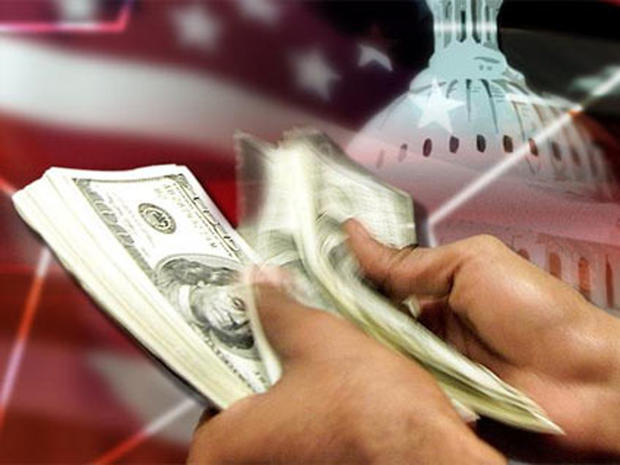In small races, super PACs cast big shadow
News Analysis
It's a good time to be obsessed with presidential politics.
There are a multitude of newspapers, television news outlets and websites (like this one) that one can turn to for coverage of every tiny development in the race for the presidency. Meanwhile, the Twitter-powered news cycle has become so compressed that it's impossible for even the most horserace-obsessed politics junkie to keep up with all the information and opinion at their fingertips.
Yet while information abounds about both the serious (policy, fundraising) and unserious (tweets from comedians, ill-advised comments from talking heads) aspects of the presidential race, hundreds of state and local elections are going relatively ignored by both the national media and news consumers. It's created a situation in which it seems more likely that Americans will have an opinion about the latest Obama campaign web video than be able to name their representative in Congress.
The disproportionate focus on national politics has been a gift to the shadowy outside groups that have been empowered by the Supreme Court to spend unlimited sums to influence elections. While news consumers are distracted by the latest minutia of the presidential race, these groups are free to spend relatively small amounts of money to attempt to swing local and state elections to the candidate who will best serve their agenda.
Consider what happened to Democrat Rep. John Spratt, the former chairman of the House Budget committee. In the 2010 election cycle, conservative billionaire Joe Ricketts - who recently made headlines for his consideration of a controversial $10 million ad campaign against President Obama- spent $187,000 to turn a close race against Spratt less than a month before Election Day. Spratt told U.S. News and World Report that the spending "was like a tidal wave" into his rural South Carolina district, and the 14-term congressman went on to lose to Republican Mick Mulvaney by ten points.
"When you have so much less money spent in congressional and state legislative races overall than in the presidential race, a small amount of spending goes a long way," said Bill Allison, Editorial Director at the Sunlight Foundation, which advocates for greater transparency in government.
According to Sunlight, super PACs spent $65 million in the 2010 campaign cycle. They've already spent $111 million in the 2012 cycle, and raised roughly double that amount. In the first half of May alone, nine super PACs spent each spent more than $300,000 to influence Senate and House races, including three that spent more than $1 million, mostly in Republican primaries.
"Romney and Obama will have a ton of money from what they've raised and from the DNC and RNC, and they can fight back when there's a group that's out messaging against them," said Allison. But he adds that in a congressional or state-level race, "you really don't have the same kind of resources and it's much easier for an outside group to define you."
While the Internet has given Americans access a huge pool of information, it has also meant the closure of many of the local newspapers that kept citizens informed about state and district politics. That's created an information vacuum in down-ballot races that plays right into the hands of the super PACs.
"The less voters know about a candidate, the easier it is for an outside organization to come in and...frame the race the way they want to frame it," said Viveca Novak of The Center for Responsive Politics, which tracks the influence of money in politics.
So what's a voter to do? Quite simply: Don't let these outside groups frame local races for you. Instead of worrying about every little development in the presidential race - most of which, in the grand scheme of things, are pretty inconsequential - spend some time getting to know your local candidates. Visit their web pages; check out the growing ranks of local politics bloggers; maybe even get out to an event or two and meet the person who hopes to represent you. (You can find out who your current representative is here.)
And the next time you see an ad from a group with an innocuous-sounding name alleging that a certain candidate wants to outsource your job to China or spend your tax dollars recklessly, check out their claims before allowing them to influence your vote.
"The key thing to remember is that the folks putting out this information are vested interests who have their own agendas," said Allison. "So keep a suspicious mind when you're seeing ads paid for by groups you've never heard of before."
